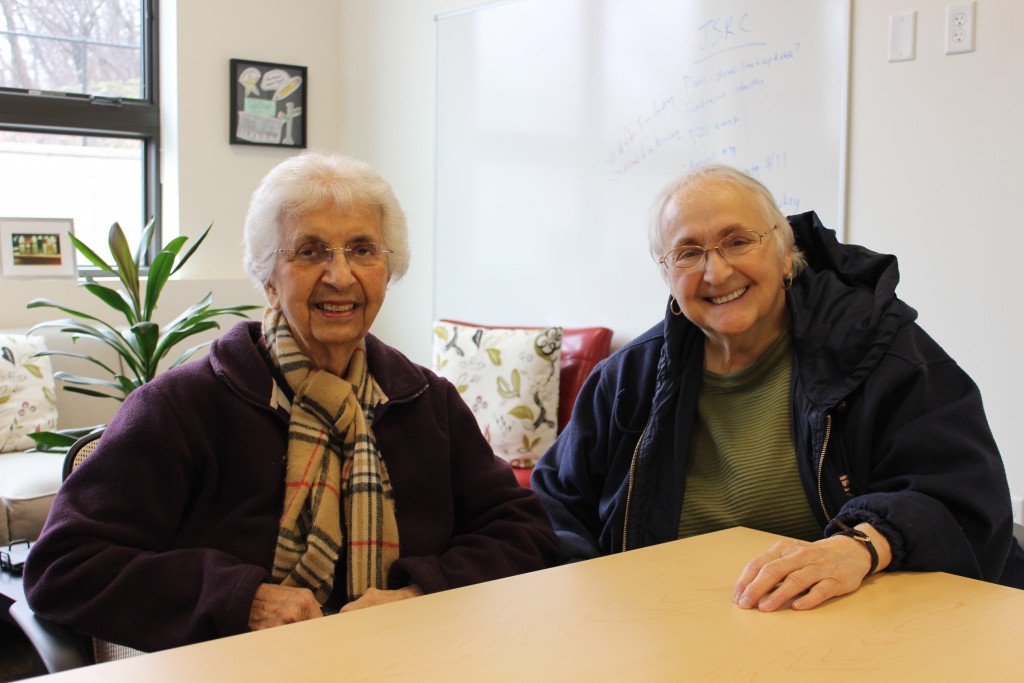Because taxes are no less mandatory if you don’t speak the language, the Boston Tax Help Coalition (BTHC) provides help in Chinese, Vietnamese, Spanish, Somali, Cape Verdean Creole, Haitian Creole, and Portuguese.
But those are only the voiced languages. The BTHC is also working to improve its services in another language too often neglected: American Sign Language (ASL).
“Many times, [deaf] people will go to a community center or a city hall and there will be misunderstandings and errors. It’s frustrating to not have access to a qualified interpreter,” Lori Siedman, a DEAF, Inc. regional services director, said through an ASL interpreter. “People in the hearing community have easy, quick, convenient access to services. We don’t have that.”
To address this inequity, the BTHC recently joined forces with DEAF, Inc. and other partners to form the Deaf and Hard of Hearing Task Force to expand access to tax and other financial services for hearing-impaired communities. In this its second year, the task force organized professional ASL interpreters for two free tax help days especially for deaf taxpayers.

At one of these days, on a rainy April afternoon, Theresa Buttiglieri and her friend Dorothy Cinquini sat chattily signing with others at Urban Edge in Jamaica Plain. Both had just netted refunds with the help of their volunteer tax preparer.
“The IRS doesn’t need my money. They’ve got enough!” Buttiglieri joked through an interpreter. (For emphasis appropriate to her heritage, Buttiglieri flashed double finger guns – the Italian gesture for “no money.”)
She worked 34 years for the RMV before a shoulder injury forced her into retirement.
“Social security hasn’t gone up. How can you live off that?” she said.
According to Siedman, many deaf people rely on social security benefits and have difficulty finding higher-paying jobs. “It’s a struggle to find a job when you’re deaf,” she said. “The hearing community has many more opportunities for work and advancement. The deaf community are often limited to work in grocery stores, restaurants, or other limited service areas.”
Add to these income barriers the challenge of daily communication. Buttiglieri decried the rise of video remote interpreting – the use of videophones to interact with remote interpreters – as a stop-gap solution. If the internet speed is not reliable or the interpreter signs too quickly, she said, she must continually interrupt to ask for clarification.
Even live interpreters can present a challenge if not professionally trained. For example, when Cinquini, 86, went to the emergency room last year, she had to rely on family members to interpret for her. After Buttiglieri pressed the hospital to provide a professional interpreter for her friend, they discovered Cinquini’s relatives, though perhaps well-intentioned, had been filtering information provided by the doctors.
“We never know whether or not we’re being taken advantage of,” Buttiglieri said. “That’s why professional interpreters are so important.”
In addition to providing state-certified interpreters, the task force has worked to improve its services from last year by training interpreters in the complexities of the tax code. Since last year, the number of completed returns for deaf taxpayers has also risen from roughly 20 to 40, estimated Jessica Doonan, chief of staff for the Mayor’s Commission for Persons with Disabilities, who serves on the task force.
The task force also includes the Northeastern University Regional Interpreter Education Center, the Internal Revenue Service, and the National Disability Institute, which funds the task force’s work.
This year the group plans to organize a day of free financial check-ups specifically for the deaf community, Doonan said. And in the future, they would like to recruit deaf or other ASL-knowledgeable individuals to become tax preparation volunteers themselves.
“This is an essential service,” said Monica Wheeler, the volunteer who prepared Buttiglieri and Cinquini’s taxes. “Taxes are a universal language.”
So, too, is the relief of feeling heard and helped. When asked about their tax preparer, Buttiglieri and Cinquini’s gave a response that begged no interpretation: two smiles and four thumbs up.
